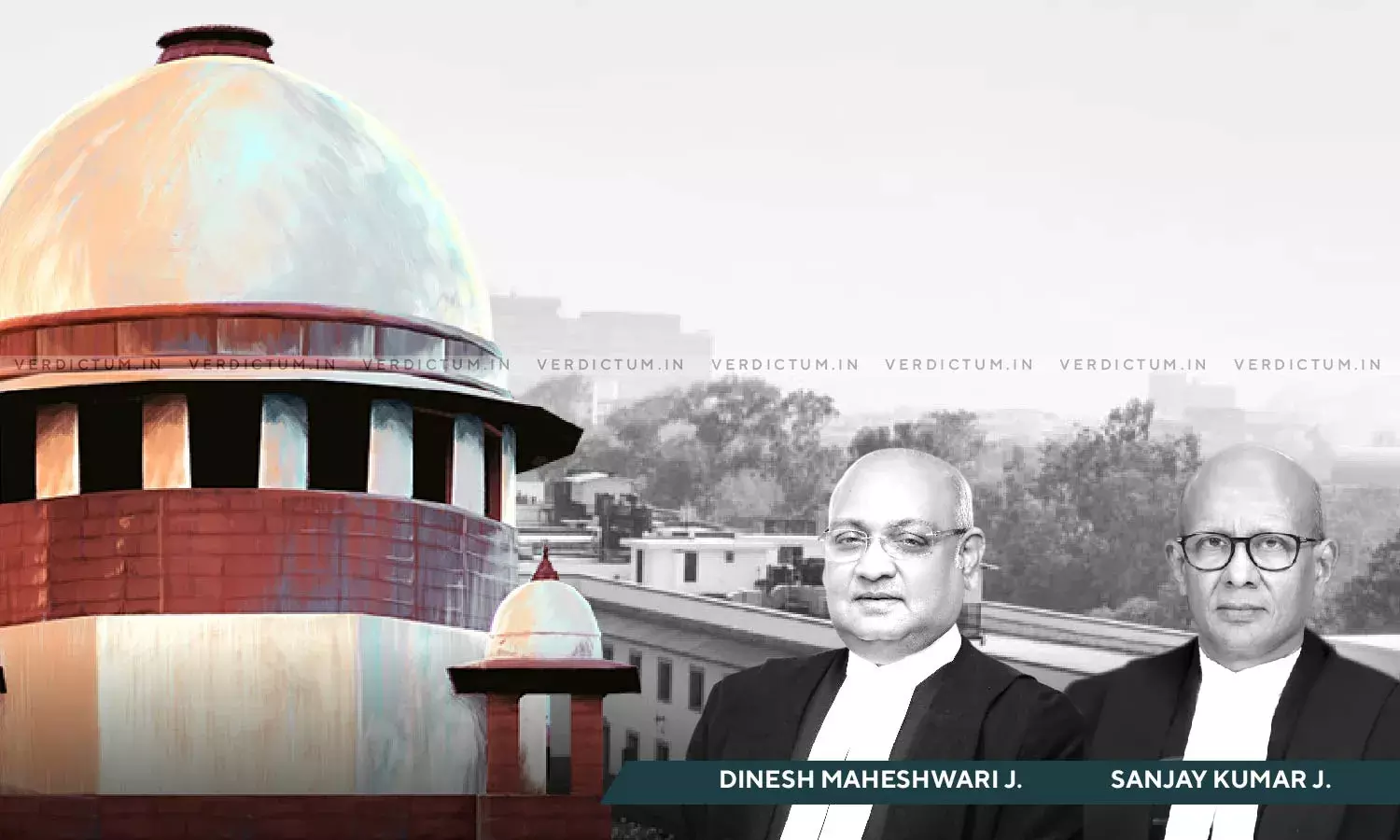"Consumer Fora Has Not Returned Cogent Findings Nor Examined Contours Of Their Jurisdiction"- SC Observes In "Peculiar" Case

A Supreme Court Bench of Justice Dinesh Maheshwari and Justice Sanjay Kumar has termed the circumstances of a consumer dispute case to be "peculiar" while providing partial relief to the appellants and holding that the Consumer Fora did not return cogent and convincing findings on the loss or injury of the respondent with reference to the relevant factors.
Senior Counsel Ranjit Kumar appeared for the appellants, while Senior Counsel Sidharth Luthra appeared for the respondent.
In this case, the appellant launched a residential project, and the respondent applied for the allotment of 3 flats, and an allotment letter was issued to her. The entire consideration was payable by the respondent in 12 installments.
The case of the appellants was that the respondent made payment up to the 6th installment but defaulted thereafter and did not make the remaining payments despite numerous reminders.
However, the respondent had issued a notice to the appellants stating that even after 16 years, the appellants had kept the allottees waiting despite having received more than 60% of the total cost of the respective flats. It was also stated that she could make further payments towards the remaining installments but she had the legal right to know when the construction would be completed and the possession would be handed over. She contended that retaining the deposited money without disclosing such essential facts amounted to a deficiency in service in terms of Section 2 of the Consumer Protection Act of 1986.
The State Commission found that the case of the complainant was akin to that of Dr. Manjeet Kaur Monga v. K.L. Suneja, and found it just and proper to direct the appellants to refund the deposited amount together with compound interest at 14% from the date of deposit.
The decision of the State Commission was upheld by the National Commission, and subsequently, the appellants approached the Supreme Court.
The Supreme Court observed that "awarding of compound interest with reference to Dr. Monga’s case and without examining any other factor has led to serious inconsistencies; and if the award as made is approved, it could only lead to unjust enrichment of the respondent in the name of disgorgement of benefits purportedly derived by the appellants".
In similar context, it was said that "the State Commission and the National Commission have passed rather assumptive orders on the basis of the decision in Dr. Monga that compound interest was required to be allowed. Various factors recounted on behalf of the respondent, including excessive harassment and denial of the fruits of her investment could all lead to a reasonable amount of compensation but, there appears absolutely no reason that compound interest be allowed in this matter".
Subsequently, the Court was of the considered view that "The respondent has attempted to compare the circle rates of the land in the area in question with the submissions that there were no circle rates of the flats in the year 1989 and the attempt on her part was to make “apples-to-apples” comparison and then factorising on the cost of flats. In the first place, no such efforts of calculation and assessment were made before the State Commission or the National Commission by the respondent".
In furtherance, it was observed that "the said Consumer Fora have not returned cogent and convincing findings on the loss or injury of the respondent with reference to the relevant factors. We have referred to these aspects only to indicate that award of compound interest in the present case had neither any foundation in the record nor any backing in law nor the Consumer Fora took care to examine the contours of their jurisdiction and the requirements of proper assessment, if at all any compensation and/or punitive damages were sought to be granted. The impugned orders are difficult to be sustained".
Finally, the Court observed that the respondent should be allowed to retain the money already received by her. In that context, it was said that "we would hasten to observe that the respondent is being allowed to retain the sum of money already received by her only because of peculiar circumstances of this case and else, this relaxation for the respondent is in no manner to be read as approval of the orders impugned or approval of the proposition of awarding compound interest in these matters. As said and iterated hereinbefore, such a proposition of awarding compound interest in these matters by the Fora exercising jurisdiction under the Act of 1986 stands disapproved".
In light of the same, the Court allowed the appeals and clarified that the appellants shall not be required to make any further payments to the respondent.
Cause Title: M/s Suneja Towers Private Limited & Anr. vs Anita Merchant
Click here to read/download the Judgment

